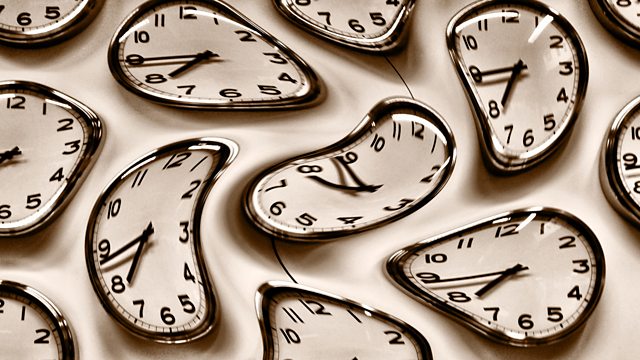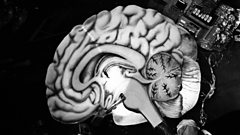Aleks Krotoski explores the technology of timekeeping. As clocks get more accurate and time becomes more abstract, what does that mean for how we experience it?
Aleks Krotoski explores the technology of time keeping. As clocks get more accurate and time becomes more abstract what does that mean for how we experience it?
The accurate keeping of time allows our technological world to keep spinning and since earliest times has been central to how civilisation has developed. From the earliest mechanical clocks, the supercomputers of their day to the first wearable technology or pocket watch they've been at the forefront of technological advancement.
But what has 'clock time' done to how we experience the passage of time? Aleks will find out as she visits the earliest time recording device ever discovered, in a muddy Aberdeen-shire field some 5000 years older than Stone Henge. In contrast she sees how modern time is produced by the atomic clocks of the BIPM in Paris, its here that time for the world is produced, sychronising everything from power grids to GPS satellites and the internet. She also explores how we experience time subjectively and what that means for how we perceive the world. Finally she hears from someone who tried to live without clocks and what that meant for his experience of time.
Contributors: Prof. Vince Gaffney, Artist Cathy Haynes, Neuroscientist David Eagleman, Professional base jumper Karina Holkeim and writer and software developer Steve Corona.
Producer: Peter McManus.
Last on
Clip
-
![]()
Is time all in our heads?
Duration: 01:38
Music Played
-
![]()
Hilary Hahn
Stillness
- Silfra.
- 1.
-
![]()
Hauschka
Clockwinder
- Silfra.
-
![]()
The Cinematic Orchestra
Burnout
- Edit, Loop and Soundbeds.
-
![]()
Tunng
Woodcat
- Comments from the Inner Chorus.
Prof. Vince Gaffney

Professor Vincent Gaffney is Chair in Landscape Archaeology within the Hub for Digital Humanities at the University of Birmingham. He has received national and international awards for his work including the 2013 European Archaeological Heritage Prize awarded by the European Association of Archaeologists and the Queen’s Anniversary Prize for Higher Education
Professor Gaffney took us to a field at Crathes Castle, the site where our ancestors first started to record time, and predict time to come.
Cathy Haynes

Cathy Haynes is a London-based artist, curator and writer. She is currently Chisenhale Gallery's artist in residence in Victoria Park, London, making Stereochron Island. In 2013 she was Timekeeper in residence at the UCL Petrie Museum, where she created the exhibition A Storm Is Blowing. She is a founder faculty member and the former Curator at The School of Life. Previously she was Curator for Art on the Underground, and Head of Interaction at Artangel. Cathy studied at Cambridge and Goldsmiths.
Cathy tells us why there’s more to time than clocks.
David Eagleman

David Eagleman is a neuroscientist and a New York Times bestselling author. He directs the Labortatory for Perception and Action at the Baylor College of Medicine. He is best known for his work on time perception, synesthesia, and neurolaw.
David explains how time is constructed within the mind, and why it isn’t always as it seems.
Karina Hollekim

Karina Hollekim was a professional extreme sports woman, until a catastrophic BASE jumping accident in 2006 left her facing the possibility of never walking again.
Karina tells us how her time perception changed in the moments before disaster, and how time dragged during her long rehabilitation. Today she has recovered, has returned to skiing and works as a motivational speaker.
Steve Corona

Steve Corona is an author and blogger who’s work has featured on LifeHacker, The New York Times, and the Wall Street Journal. In 2012 he decided to live without clocks, he tells us how it completely changed his life.
Broadcast
- Mon 7 Apr 2014 16:30BBC Radio 4
Featured in...
![]()
Evening Commute
A selection of downloadable programmes, perfect for the journey home
Podcast
-
![]()
The Digital Human
Aleks Krotoski explores the digital world





